Articles
-
 Instructions Answer the following questions to provide the context for writing the Staffing Plan after the RFP is released. Keep your answers short. The less narrative the better. After the RFP is released, your responses here will enable the Proposal Content Plan to be prepared more quickly and to contain better instructions for the authors who will write the proposal narrative. Questions that drive your strategies Since this is intended for pre-RFP response, anticipating the fi
Instructions Answer the following questions to provide the context for writing the Staffing Plan after the RFP is released. Keep your answers short. The less narrative the better. After the RFP is released, your responses here will enable the Proposal Content Plan to be prepared more quickly and to contain better instructions for the authors who will write the proposal narrative. Questions that drive your strategies Since this is intended for pre-RFP response, anticipating the fi- 0 comments
- 222 views
-
 Objective proposal reviews might be possible if you have unlimited staffing. But nobody has unlimited staffing. And maybe striving too hard for objectivity actually gets in the way of validating the quality of a proposal. Where should we draw the line between reviewers who are part of the proposal effort and reviewers who are separate? Do you really have enough trained reviewers to bring in a fresh team for every review to ensure objectivity? If you do, you are the exception and not the rul
Objective proposal reviews might be possible if you have unlimited staffing. But nobody has unlimited staffing. And maybe striving too hard for objectivity actually gets in the way of validating the quality of a proposal. Where should we draw the line between reviewers who are part of the proposal effort and reviewers who are separate? Do you really have enough trained reviewers to bring in a fresh team for every review to ensure objectivity? If you do, you are the exception and not the rul- 0 comments
- 2,532 views
-
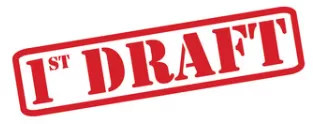 The higher the quality of the draft, the less important your proposal reviews become. The disruption they can cause also decreases. This makes investing in getting the first draft right worth the effort. They need some way to compare what they have written to what is required. If you haven’t defined quality for them, they can only guess at it. In addition to defining proposal quality, you need quality criteria that can be used to measure whether the definition has been fulfilled. Quality cr
The higher the quality of the draft, the less important your proposal reviews become. The disruption they can cause also decreases. This makes investing in getting the first draft right worth the effort. They need some way to compare what they have written to what is required. If you haven’t defined quality for them, they can only guess at it. In addition to defining proposal quality, you need quality criteria that can be used to measure whether the definition has been fulfilled. Quality cr- 0 comments
- 156 views
-
 Are your proposal reviews leaderless? Just because people show up, are enthusiastic, and are willing to work hard that doesn’t mean they are well led. Usually the proposal review function is coordinated by the proposal manager. But if the proposal manager is responsible for creating the proposal and administering the process, does it make sense to add quality validation to that list? How important is quality validation to your win rate? Is it enough to merit some dedicated attention? C
Are your proposal reviews leaderless? Just because people show up, are enthusiastic, and are willing to work hard that doesn’t mean they are well led. Usually the proposal review function is coordinated by the proposal manager. But if the proposal manager is responsible for creating the proposal and administering the process, does it make sense to add quality validation to that list? How important is quality validation to your win rate? Is it enough to merit some dedicated attention? C- 0 comments
- 108 views
-
 Reviewers do not show up already knowing what to do. They don’t know the procedures are to be followed. They don’t know the RFP. They may not even know the proper way to read an RFP. They also may not know how your organization defines proposal quality. They may or may not know the customer. They may not even know how to effectively review a proposal. All of their experience may have come from doing purely subjective proposal reviews instead of performing quality validation. They need training i
Reviewers do not show up already knowing what to do. They don’t know the procedures are to be followed. They don’t know the RFP. They may not even know the proper way to read an RFP. They also may not know how your organization defines proposal quality. They may or may not know the customer. They may not even know how to effectively review a proposal. All of their experience may have come from doing purely subjective proposal reviews instead of performing quality validation. They need training i- 0 comments
- 164 views
-
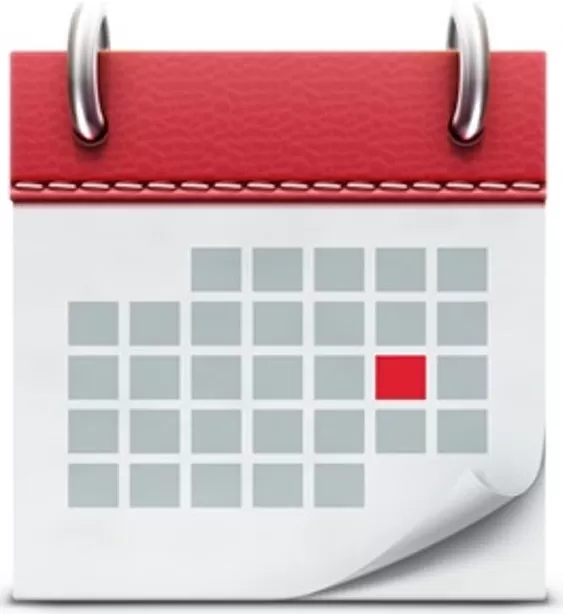 Creating and implementing the proposal schedule: The Proposal Manager is in charge of creating and implementing the proposal schedule. The Capture Manager is responsible for identifying the resources required. You can present your proposal schedule using whatever format (calendar, gantt chart, PowerPoint, etc.) you prefer. But first you need to determine what should go on your schedule. Within the MustWin Process we designate several plans, including Logistics a
Creating and implementing the proposal schedule: The Proposal Manager is in charge of creating and implementing the proposal schedule. The Capture Manager is responsible for identifying the resources required. You can present your proposal schedule using whatever format (calendar, gantt chart, PowerPoint, etc.) you prefer. But first you need to determine what should go on your schedule. Within the MustWin Process we designate several plans, including Logistics a- 0 comments
- 193 views
-
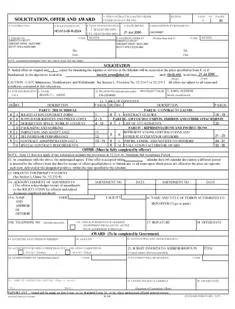 Starting the proposal outline A detailed RFP will provide: Instructions for how to organize the proposal The evaluation criteria that will be used to assess the proposals, or at least a description of what’s important to the customer The requirements that your proposed offering should fulfill The outline needs to reflect the structure that the customer expects and incorporate everything that the customer wants you to address. Using a compliance matrix to complete y
Starting the proposal outline A detailed RFP will provide: Instructions for how to organize the proposal The evaluation criteria that will be used to assess the proposals, or at least a description of what’s important to the customer The requirements that your proposed offering should fulfill The outline needs to reflect the structure that the customer expects and incorporate everything that the customer wants you to address. Using a compliance matrix to complete y- 0 comments
- 180 views
-
 Having a Production Plan helps to anticipate issues ahead of time and to ensure that production will go smoothly. It also serves as a handy reference for answering questions about how the final proposal will be produced. The Proposal Manager should work with the Production Manager to complete the Production Plan. Due Date: Shipment/Delivery Date: Delivery method: Hand carried FedEx Email: Website upload. Ur
Having a Production Plan helps to anticipate issues ahead of time and to ensure that production will go smoothly. It also serves as a handy reference for answering questions about how the final proposal will be produced. The Proposal Manager should work with the Production Manager to complete the Production Plan. Due Date: Shipment/Delivery Date: Delivery method: Hand carried FedEx Email: Website upload. Ur- 0 comments
- 147 views
-
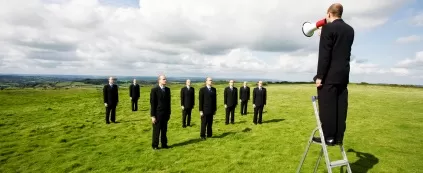 The Proposal Manager is responsible for tasking people with proposal assignments and tracking them through to fulfillment. The Proposal Manager makes the assignments. The Capture Manager is responsible for making sure there are enough resources available to complete the assignments. Proposal assignments can take different forms. Develop the approach that will be proposed. Develop the content plan or other supporting documents. Write a
The Proposal Manager is responsible for tasking people with proposal assignments and tracking them through to fulfillment. The Proposal Manager makes the assignments. The Capture Manager is responsible for making sure there are enough resources available to complete the assignments. Proposal assignments can take different forms. Develop the approach that will be proposed. Develop the content plan or other supporting documents. Write a- 0 comments
- 272 views
-
 The goal of the Competitive Assessment in the MustWin Process is to capture the information needed to write the proposal. In the proposal you will need to describe the role of teaming partners and the benefits to the customer for having them. You will also need to position your company and offering against those of your competitors. The proposal must articulate the reasons why the customer should select you, as opposed to any of your competitors.
The goal of the Competitive Assessment in the MustWin Process is to capture the information needed to write the proposal. In the proposal you will need to describe the role of teaming partners and the benefits to the customer for having them. You will also need to position your company and offering against those of your competitors. The proposal must articulate the reasons why the customer should select you, as opposed to any of your competitors.- 0 comments
- 158 views
-
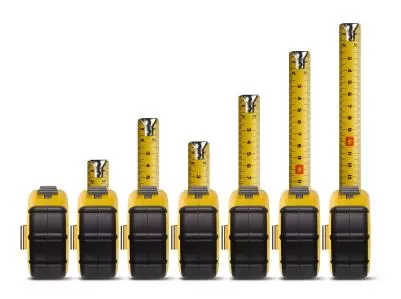 The scoring system for Readiness Reviews can be used to quantify your progress and readiness. By tracking your readiness you can ensure that you trend towards being ready. By tracking across multiple pursuits you can identify exactly what is helping or hurting your win rates. Will You Be Ready In Time for RFP Release? Readiness Reviews lend themselves to providing metrics. Across a single opportunity you can track whether you are trending up or trending
The scoring system for Readiness Reviews can be used to quantify your progress and readiness. By tracking your readiness you can ensure that you trend towards being ready. By tracking across multiple pursuits you can identify exactly what is helping or hurting your win rates. Will You Be Ready In Time for RFP Release? Readiness Reviews lend themselves to providing metrics. Across a single opportunity you can track whether you are trending up or trending- 0 comments
- 1,319 views
-
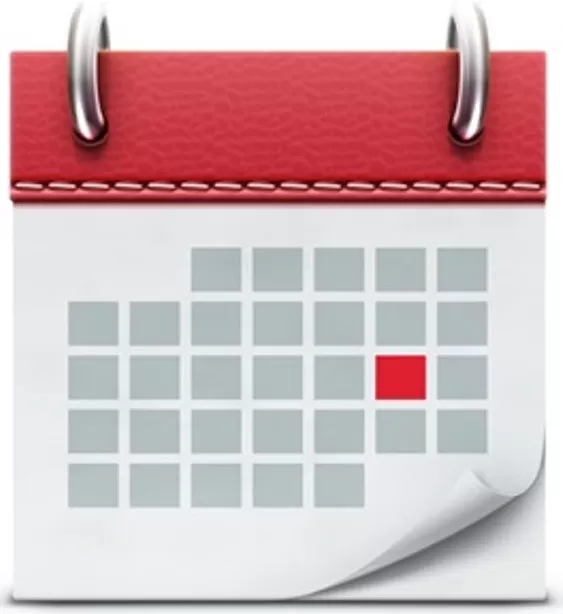 The MustWin Process uses a formula to schedule Readiness Reviews: The Business Development Manager should complete each report by the due date entered on this page. The due dates are set by dividing the time until RFP release evenly across the four reviews. On or as soon as possible after that date, the Executive Sponsor should review the report and assess whether the progress is sufficient to be ready at RFP release. To determine the dates, y
The MustWin Process uses a formula to schedule Readiness Reviews: The Business Development Manager should complete each report by the due date entered on this page. The due dates are set by dividing the time until RFP release evenly across the four reviews. On or as soon as possible after that date, the Executive Sponsor should review the report and assess whether the progress is sufficient to be ready at RFP release. To determine the dates, y- 0 comments
- 208 views
-
 Most companies have their priorities backwards and it’s hurting their win rate. To show them, I like to tell companies that they should spend as little time as possible figuring out how to win, what they need to say to the customer to get the top score, and how they should present their offering. The much easier alternative is to write draft after draft until you run out of time without ever having figured it out. Do as little as possible to win. Of course, you’re not going to win if y
Most companies have their priorities backwards and it’s hurting their win rate. To show them, I like to tell companies that they should spend as little time as possible figuring out how to win, what they need to say to the customer to get the top score, and how they should present their offering. The much easier alternative is to write draft after draft until you run out of time without ever having figured it out. Do as little as possible to win. Of course, you’re not going to win if y- 0 comments
- 1,651 views
-
 My wife broke the screen on her phone recently. The repair turned out fine, but her experience with the vendor wasn’t great. It wasn’t bad either. But listening to her describe it, all I could think of was what a great teaching moment it was for proposal writing. Yeah, I’m wired that way. The vendor didn’t have the right screen replacement and had to order it. When it came in, it sat until my wife called to see if it came in when it was supposed to. When she got home after she dropped her p
My wife broke the screen on her phone recently. The repair turned out fine, but her experience with the vendor wasn’t great. It wasn’t bad either. But listening to her describe it, all I could think of was what a great teaching moment it was for proposal writing. Yeah, I’m wired that way. The vendor didn’t have the right screen replacement and had to order it. When it came in, it sat until my wife called to see if it came in when it was supposed to. When she got home after she dropped her p- 0 comments
- 1,404 views
-
 Victory for a proposal means that the customer accepts your proposal instead of their other alternatives. Depending on the customer, there are different paths that can get you there. And sometimes getting there means taking more than one path. The paths to victory include: Getting the top score. This is not nearly as straightforward as it sounds. First you have to assess the categories that get scored, and then what you have to do to maximize your score in each category. If the lang
Victory for a proposal means that the customer accepts your proposal instead of their other alternatives. Depending on the customer, there are different paths that can get you there. And sometimes getting there means taking more than one path. The paths to victory include: Getting the top score. This is not nearly as straightforward as it sounds. First you have to assess the categories that get scored, and then what you have to do to maximize your score in each category. If the lang- 0 comments
- 1,532 views
-
 There’s a line that you should not cross. It’s hard to tell exactly where that line is. But once you cross it, your proposal manager is no longer focusing on increasing your win rate and instead is simply getting proposals out the door. At the simplest level, a proposal manager is responsible for implementing the process. And being the heroes they are, they tend to fill gaps. But each gap they fill means giving up something else. And when they cross the line from overseeing the process into
There’s a line that you should not cross. It’s hard to tell exactly where that line is. But once you cross it, your proposal manager is no longer focusing on increasing your win rate and instead is simply getting proposals out the door. At the simplest level, a proposal manager is responsible for implementing the process. And being the heroes they are, they tend to fill gaps. But each gap they fill means giving up something else. And when they cross the line from overseeing the process into- 0 comments
- 1,727 views
-
 It’s a mistake to have the same person providing proposal management and proposal writing. Not only will it increase your failure rate, but it will also decrease your company’s ability to write great proposals. No matter how many times people say this, you still see companies thinking they can get away with having the proposal manager write small proposal sections. Here are the risks: Stand-up and progress meetings. If I’m the proposal manager and I take on a writing assignme
It’s a mistake to have the same person providing proposal management and proposal writing. Not only will it increase your failure rate, but it will also decrease your company’s ability to write great proposals. No matter how many times people say this, you still see companies thinking they can get away with having the proposal manager write small proposal sections. Here are the risks: Stand-up and progress meetings. If I’m the proposal manager and I take on a writing assignme- 0 comments
- 1,594 views
-
 1) Is what you’re offering really the best? Having the best people is not good enough. You need the best people with the best processes. But even having the best people and best processes isn’t even good enough. You need the best people and the best processes supported by the best: Quality assurance Tools Executive oversight Issue resolution Resource allocation Communication Oh, and you need them to have the best impact on the stakeholders and
1) Is what you’re offering really the best? Having the best people is not good enough. You need the best people with the best processes. But even having the best people and best processes isn’t even good enough. You need the best people and the best processes supported by the best: Quality assurance Tools Executive oversight Issue resolution Resource allocation Communication Oh, and you need them to have the best impact on the stakeholders and- 0 comments
- 1,032 views
-
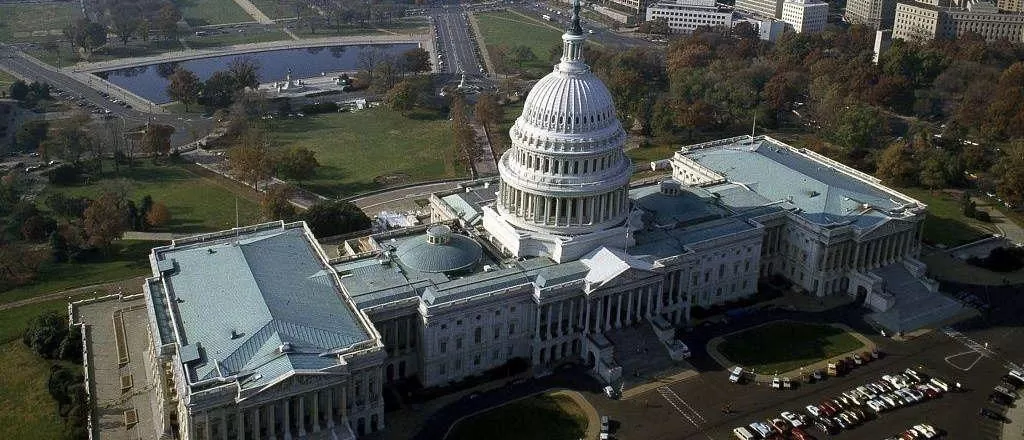 This program is for people who want to build organizations that reliably win contracts. No. Let me rephrase. This program is for people who want to build their entire company around reliably winning contracts. This program is for people who want to grow by capturing the leads they chase, instead of chasing as many leads as they possibly can until they win something. Convenient format for applied learning and continuous improvement Each month there will be a new topic to foc
This program is for people who want to build organizations that reliably win contracts. No. Let me rephrase. This program is for people who want to build their entire company around reliably winning contracts. This program is for people who want to grow by capturing the leads they chase, instead of chasing as many leads as they possibly can until they win something. Convenient format for applied learning and continuous improvement Each month there will be a new topic to foc- 0 comments
- 1,895 views
-
 You’ve successfully conducted business virtually for some weeks now. But are you good at it, or have you just modified your old ways of working so that you can get by without co-presence? If you’ve got some weeks of mandatory virtualness still to go, maybe you do a little reengineering. A vaccine is 12-18 months away. Maybe even after some people go back to work it won’t be completely over. Maybe things will never be completely like they were. Maybe it’s time to give virtual just as much pr
You’ve successfully conducted business virtually for some weeks now. But are you good at it, or have you just modified your old ways of working so that you can get by without co-presence? If you’ve got some weeks of mandatory virtualness still to go, maybe you do a little reengineering. A vaccine is 12-18 months away. Maybe even after some people go back to work it won’t be completely over. Maybe things will never be completely like they were. Maybe it’s time to give virtual just as much pr- 0 comments
- 60 views

